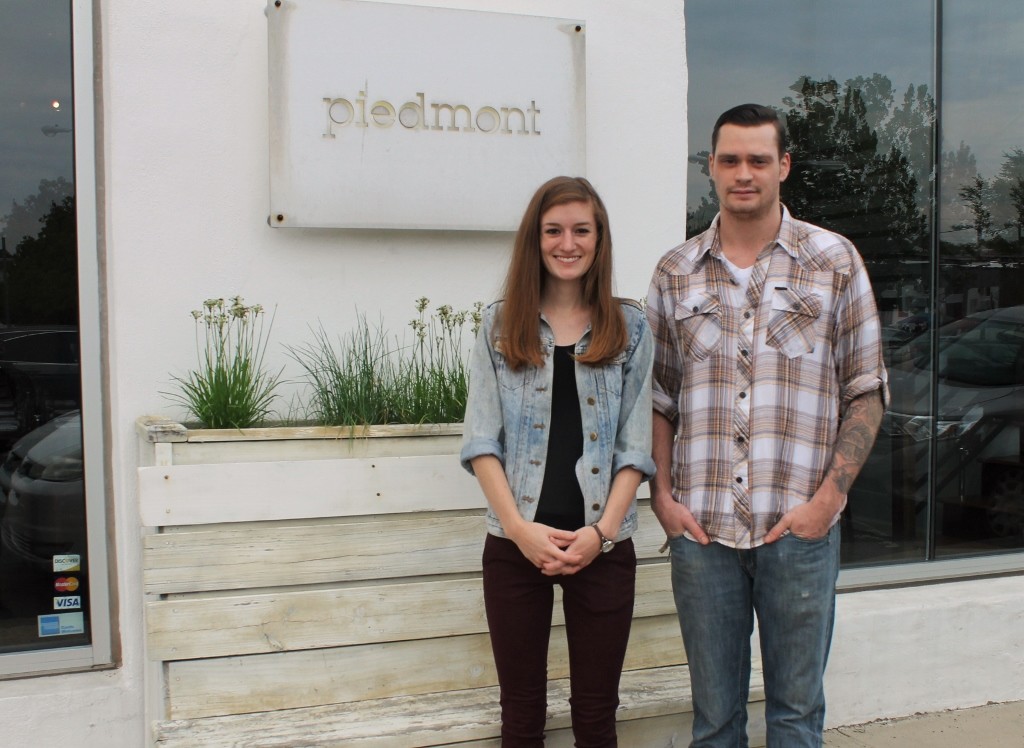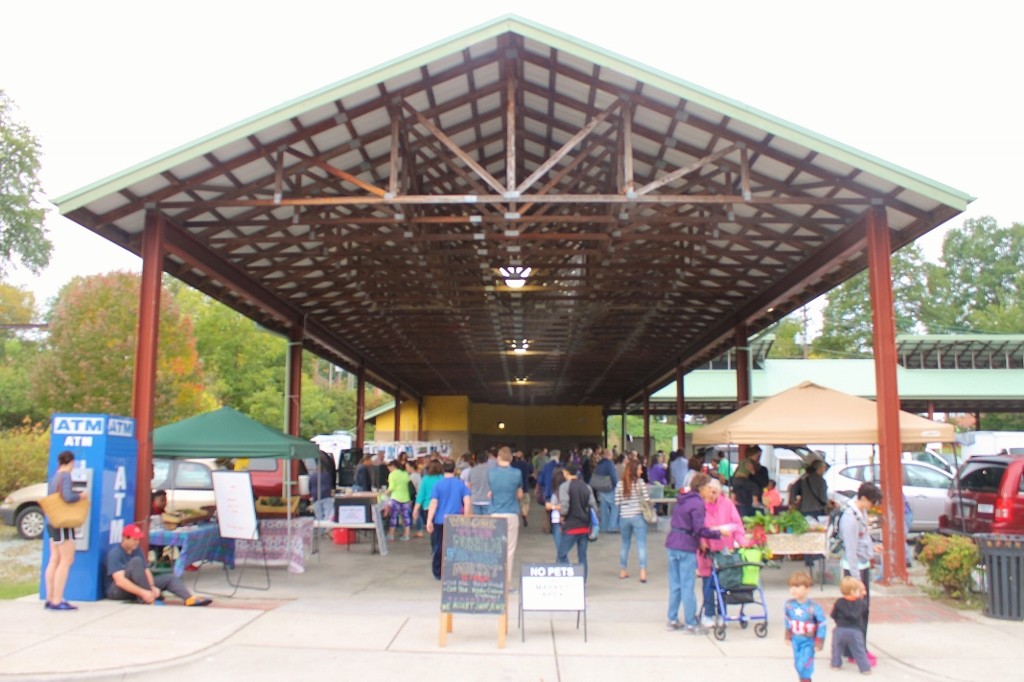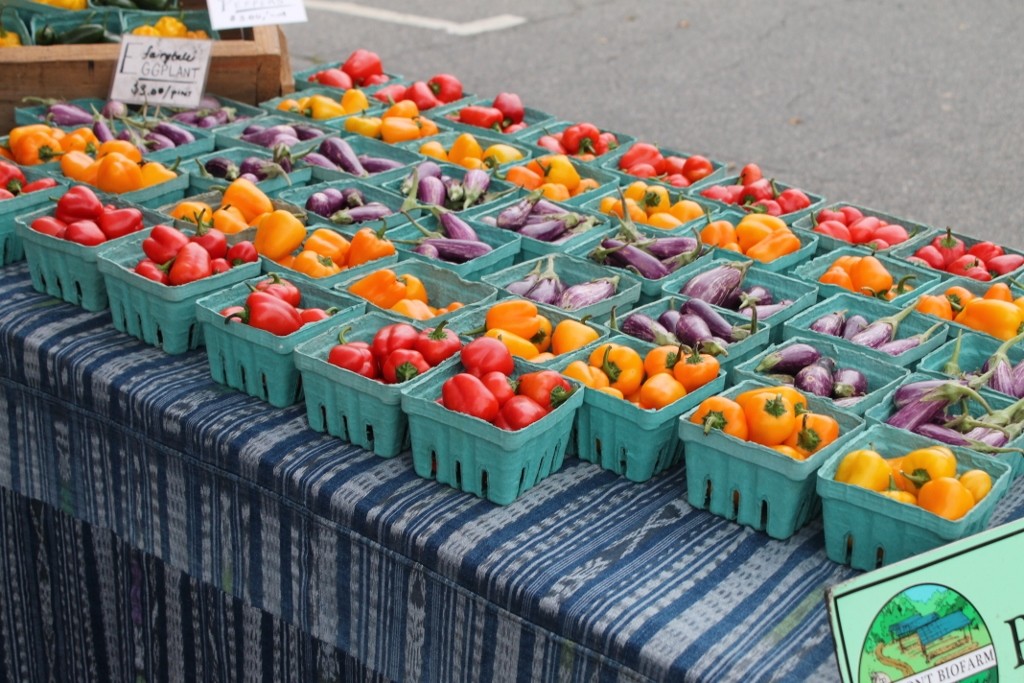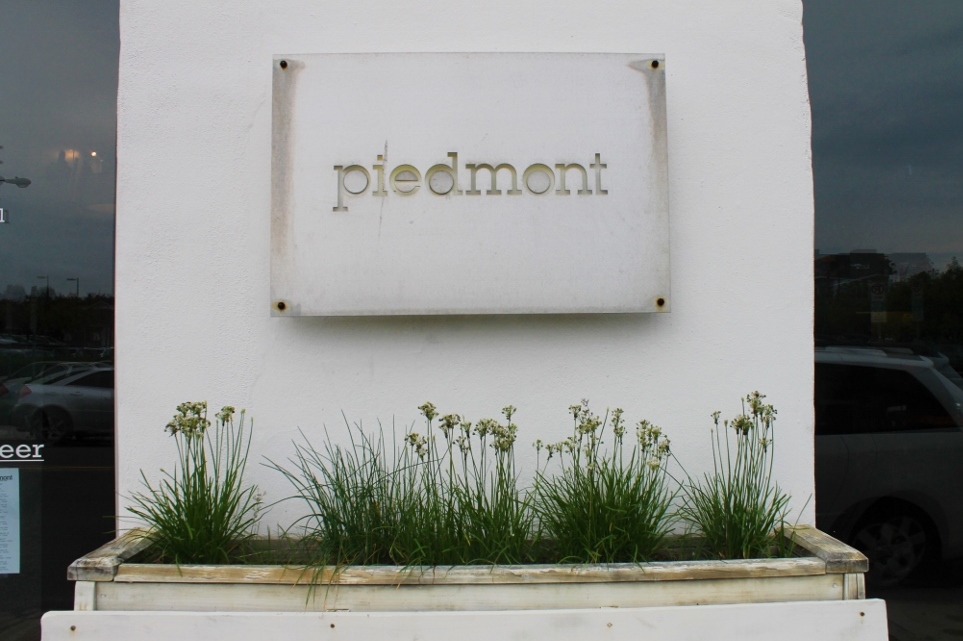Every Wednesday and Saturday, Piedmont Restaurant’s executive chef Greg Gettles heads down to the Durham Farmers’ Market to pick up fresh ingredients for his restaurant’s innovative and mouth-watering menu. Last weekend, Duke Spoon accompanied Chef Gettles and Piedmont’s assistant manager Anna Morris to the market, and talked to them about their product choices, Chef Gettles’ cooking and more.

Photo by Brian Chan
Before making the short walk to the market (just a block down the road from the restaurant), Chef Gettles noted that one of the great things about Piedmont was that farmers and vendors sometimes “just stop by and give [them] stuff,” based on what’s available and what people forage or grow nearby. Case in point: a hen of the woods cluster and two mysterious boxes were delivered to the restaurant moments after we arrived.
The mushroom farmer explained that the boxes were filled with fruit and nuts from a ginkgo tree, which is an ancient Chinese plant dating back hundreds of millions of years. It’s rarely found in the United States, and when Chef Gettles asked where he found the tree, the vendor cheekily refused to answer. Chef Gettles noted that the nuts tasted like a cross between peanut butter and peaches, offering a glimpse of his sharp palate and creative mind.

Photo by Brian Chan
Throughout the morning, there were two things that struck me most about Piedmont Restaurant and Chef Gettles: one, they value integrity very strongly, and two, they are open minded and willing to experiment with new ingredients. When I asked Chef Gettles how he decides which vendors to work with, he emphasized the importance of personal relationships. For example, the first farmer we visited, George, has known Chef Gettles for over six years. Chef Gettles praised George for being an honest man full of integrity, because he never raises prices when most other vendors are doing so to stay competitive.
From his truck, George gave us crates of vegetables including broccoli and mustard frill. The mustard frill was most intriguing, as Chef Gettles noted that George grows things that almost no one else will grow in the area. On George’s part, he lauded Chef Gettles, saying that it’s nice to work with people who will experiment cooking with anything.
Though Chef Gettles seemed too modest to detail much of his experimentation, Anna was more than happy to gush about his creative dishes and ideas. Among her favorite Gettles creations is the beet salad, which includes beets steeped in ginger, pickled beet stems, arugula and burnt honey foam. Another innovative dish (shown above) is the catfish, served with popcorn grits, roasted baby carrots, root vegetable hash and a turmeric emulsion. Both of these dishes display not only Chef Gettles’ obvious imagination, but also his immense culinary skill. According to him, it was important to “get the [cooking] techniques down first, and then change ingredients” in order to create new dishes.
Before heading back to the restaurant, we picked up some more ingredients, including cheese for Piedmont’s charcuterie and peppers from Piedmont Biofarm. One of the restaurant’s favorite peppers to use is the Tobago pepper, which we were given the chance to taste. Anna described Tobagos like Habanero peppers without the heat; once I bit into one, I knew exactly what she meant. The peppers are full of a very fragrant, perfume-like flavor that is surprisingly sweet and has the tiniest hint of kick. If I were to use them creatively, I’d probably toss them in a salsa, or maybe stuff them. Chef Gettles thinks a little more outside of the box: he once made a soda out of them.

Photo by Rachel Yang
When we got back to Piedmont, we dropped off the produce in the kitchen, and talked a little more about Chef Gettles’ creative process and the whole idea of a farm-to-table restaurant. In reference to experimenting with food and imagining new flavor combinations and dishes, Chef Gettles provided two main stipulations. Firstly, one should experiment with ingredients that are available and in season. And secondly, whatever combinations of ingredients being used, they have to of course taste good. From there, he said, “you can manipulate it into whatever you want,” emphasizing that the ability to manipulate ingredients to fit your imagination is the “beauty of [experimentation].”
On the farm-to-table concept, Chef Gettles mentioned that eating locally sourced food is very important. Not only are there nutritional benefits in doing so, but local foods generally taste better too. Chef Gettles said that the broccoli just brought down from the market was only picked yesterday, and that if he served it plain, it would actually taste like candy- a drastic difference from what we normally think of broccoli’s taste.
Though eating local foods and having a farm-to-table concept for the restaurant are important, Chef Gettles also mentioned that those terms should really be irrelevant. “Farm-to-table is meaningless,” he remarked. While mass chain restaurants like Olive Garden won’t use local foods, “if you’re an independent restaurant not using farm-to-table, what are you doing?” Chef Gettles explained that the conversation now for restaurants should really be sustainability. Piedmont composts their waste, and feeds it to pigs. And according to Chef Gettles, watching pigs tear up compost is actually quite the experience.

Photo by Brian Chan
Spending the morning with Piedmont Restaurant was really an eye-opening experience to the restaurant’s operation and the creative mind of Chef Gettles. It also gave me a much deeper appreciation for restaurants, and all the work that goes into creating memorable meals for others. Piedmont Restaurant and Chef Gettles surely are gems in the Durham food scene, and the care and dedication put into their food are truly admirable.
Special thanks to Piedmont Restaurant, Executive Chef Greg Gettles and Assistant Manager Anna Morris for coordinating this fantastic experience, and allowing Duke Spoon to spend a morning with them.


